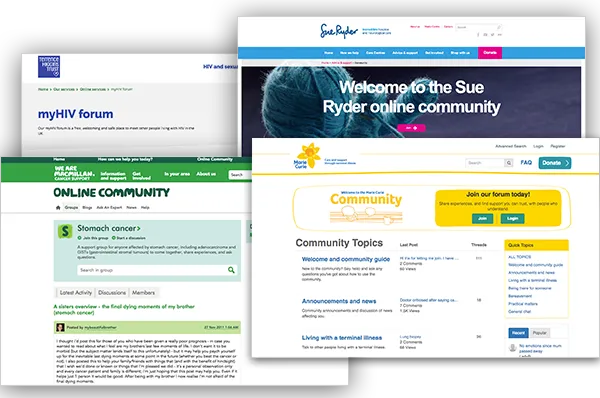Peer support involves people sharing knowledge, lived experience or practical help with each other.

The role of peer support
We spoke to Garry Brough from Positively UK recently about how they provide they provide peer support for people recently diagnosed with HIV.
Much like our interview where we heard about how the Compassionate Frome project works in practice, speaking to Garry Brough from Positively UK was equally fascinating to see how peer support is used as an effective way of enabling people with HIV to live well and manage their HIV.
What is peer support?
Hearing from Garry about how peer support works for people diagnosed with HIV, it made us realise just how crucial the context and delivery of information is for people.
When it comes to HIV — it seems the sector is a bit further ahead in terms of peer support than other conditions. For example, in some clinics, peer support is factored into the clinical pathway at the point of HIV diagnosis (as they recognise the link between receiving bad news and peoples’ ability to absorb information).
How can peer support help?
Garry’s experience working as a patient rep in an HIV clinic gave some fascinating insights into how peer support can open up an entirely new source of information to someone recently diagnosed with HIV.
There were many insights to share, but some of the most relevant to our project include:
- When people meet somebody else living with HIV — they can ask questions because they can formulate those questions in relation to somebody else, they can ask questions at a remove from themselves
- When doctors or nurses give a diagnosis and ask the question — “Is there anything you’d like to know?” — people haven’t yet accustomed themselves to that diagnosis in relation to themselves, they have not adjusted to themselves as being a person living with a terminal condition
- The longer people leave it to access peer support the more time they have which keeps them in their head or looking online for things which may not be the right information
Another thing Garry mentioned was that in the British HIV Association guidelines, there is an aim for 90% of those diagnosed to be referred or signposted to peer support services.
Does this exist for other disease pathways? If not should it? Could it?
Whilst many voluntary and community groups encourage and provide peer support — there could be a bigger role to play for health and social care commissioners to recognise the potential benefits of peer support.
The role of online forums
It seems that many instances of peer support take the form of face to face interaction, including the ‘Peer Navigator’ project which is a partnership between Positively UK and Homerton University Hospital.
There does however seem to be a role to play for online peer support, evidenced perhaps by the rise in online forums by charities like Marie Curie, Sue Ryder and many others.

These online forums seem to meet the same need, in a digital way — and in one of our interviews someone actively searched these forums to find out about prognosis and life expectancy of someone with the same illness as her ex-husband.
This however was very much down to that person individually searching and coming across that information using their own initiative rather than any form of ‘prescribed peer support’.
Takeaways for our project
This interview was a bit of a breakthrough as it widened our thinking in terms of not just what information people wanted, but how they accessed / received it.
The HIV example shows that the person who delivers the information can be as important as the actual information they receive. One final quote from Garry sums it up perfectly I think…
The longer people leave it [to access peer support] the more time they have which keeps them in their head or looking online for things which may not be the right information.
The sooner they can break down the internal secrecy / anxiety that comes with a diagnosis and find that shared common ground with somebody else the easier it is to process things.
Thanks to Garry for sparing the time and knowledge.